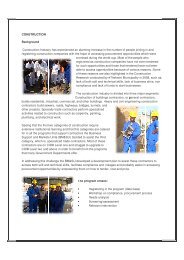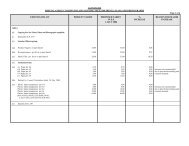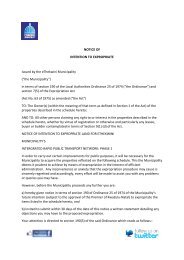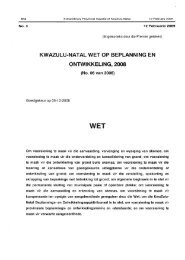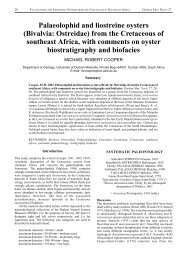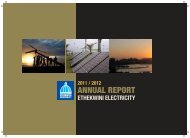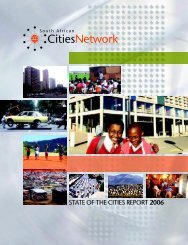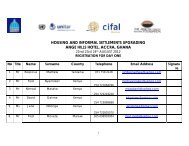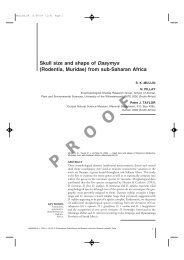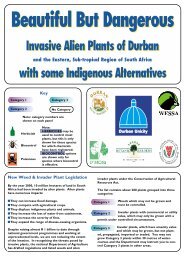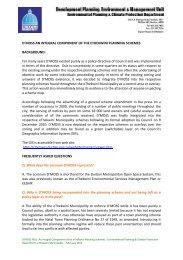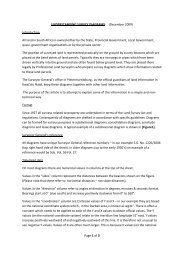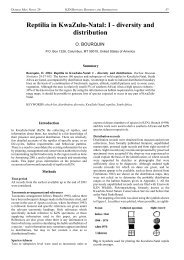A Return to Paradise and its People - Durban
A Return to Paradise and its People - Durban
A Return to Paradise and its People - Durban
You also want an ePaper? Increase the reach of your titles
YUMPU automatically turns print PDFs into web optimized ePapers that Google loves.
SHOEMAKERS Craft skills in South Africa were<br />
severely damaged under the restriction of apartheid.<br />
As the new South Africa blooms, craftspeople are<br />
returning <strong>to</strong> the streets, their skills often informed<br />
by the trickle of people from countries further north.<br />
Shoemakers are a prime example of this, <strong>and</strong> you<br />
can get shoes fixed while-you-wait all over <strong>Durban</strong>.<br />
The price is low, the quality is high, <strong>and</strong> a muchloved<br />
pair of shoes gets <strong>to</strong> walk once again.<br />
34<br />
MARKETS Many <strong>Durban</strong>ites buy much of their food from the various<br />
markets in <strong>and</strong> around <strong>Durban</strong>. Fish markets, meat markets <strong>and</strong> fresh<br />
produce markets line the commuter route out of <strong>Durban</strong> where a<br />
significant number of the city’s residents buy their evening’s provisions<br />
on the way home. On the periphery of the markets, smaller traders sell<br />
all manner of wares from audio cassettes <strong>to</strong> belts, headache tablets <strong>to</strong><br />
loose cigarettes. While the markets are the cheapest source of basic<br />
foodstuffs for working class consumers, middle class <strong>Durban</strong>ites generally<br />
do their shopping at supermarkets in malls, or at s<strong>to</strong>res near their<br />
homes. Additionally, many pay a substantial premium for organically<br />
grown vegetables produced by small-scale farmers, available at morning<br />
markets <strong>and</strong> fleamarkets. Increasingly, many of the city’s fleamarkets<br />
also sell a variety of fresh produce <strong>and</strong> manufactured foodstuffs.<br />
The Markets of Warwick City Guide The Warwick Junction area is one of <strong>Durban</strong>’s most important commercial<br />
<strong>and</strong> transit hubs, particularly for the city’s working class, many of whom straddle the urban/rural divide. In Warwick<br />
you’ll find an extraordinary array of human activity which caters <strong>to</strong> the hundreds of thous<strong>and</strong>s of people who move<br />
through the area each day. Cars roar by overhead on newly built freeways while herbalists sell traditional medicine<br />
on an ab<strong>and</strong>oned fly-over now linked by a footbridge <strong>to</strong> the activities below. Follow that bridge <strong>and</strong> you’ll find yourself<br />
in a vibrant, polyphonic world that is home <strong>to</strong> a mass of commercial <strong>and</strong> cultural activities, including various markets<br />
which sell everything from blue jeans <strong>and</strong> farm-fresh produce <strong>to</strong> religious goods <strong>and</strong> cooked animal heads. The<br />
eThekwini Municipality has produced a series of City Guide area maps, including one which explores the various<br />
markets of Warwick. Pick up a copy of the Markets of Warwick City Guide at Tourist Junction in the centre of <strong>Durban</strong>.


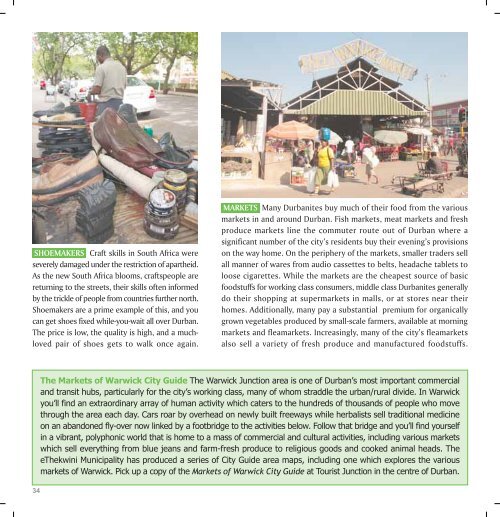
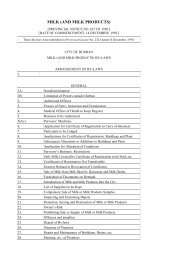
![INK Environmental Sustainability Booklet [19 MB] - Durban](https://img.yumpu.com/22025104/1/190x136/ink-environmental-sustainability-booklet-19-mb-durban.jpg?quality=85)
